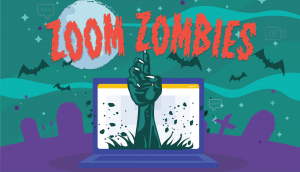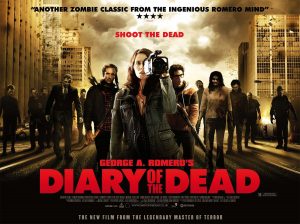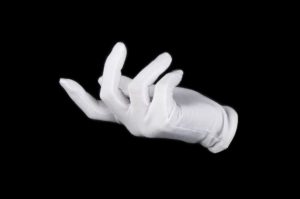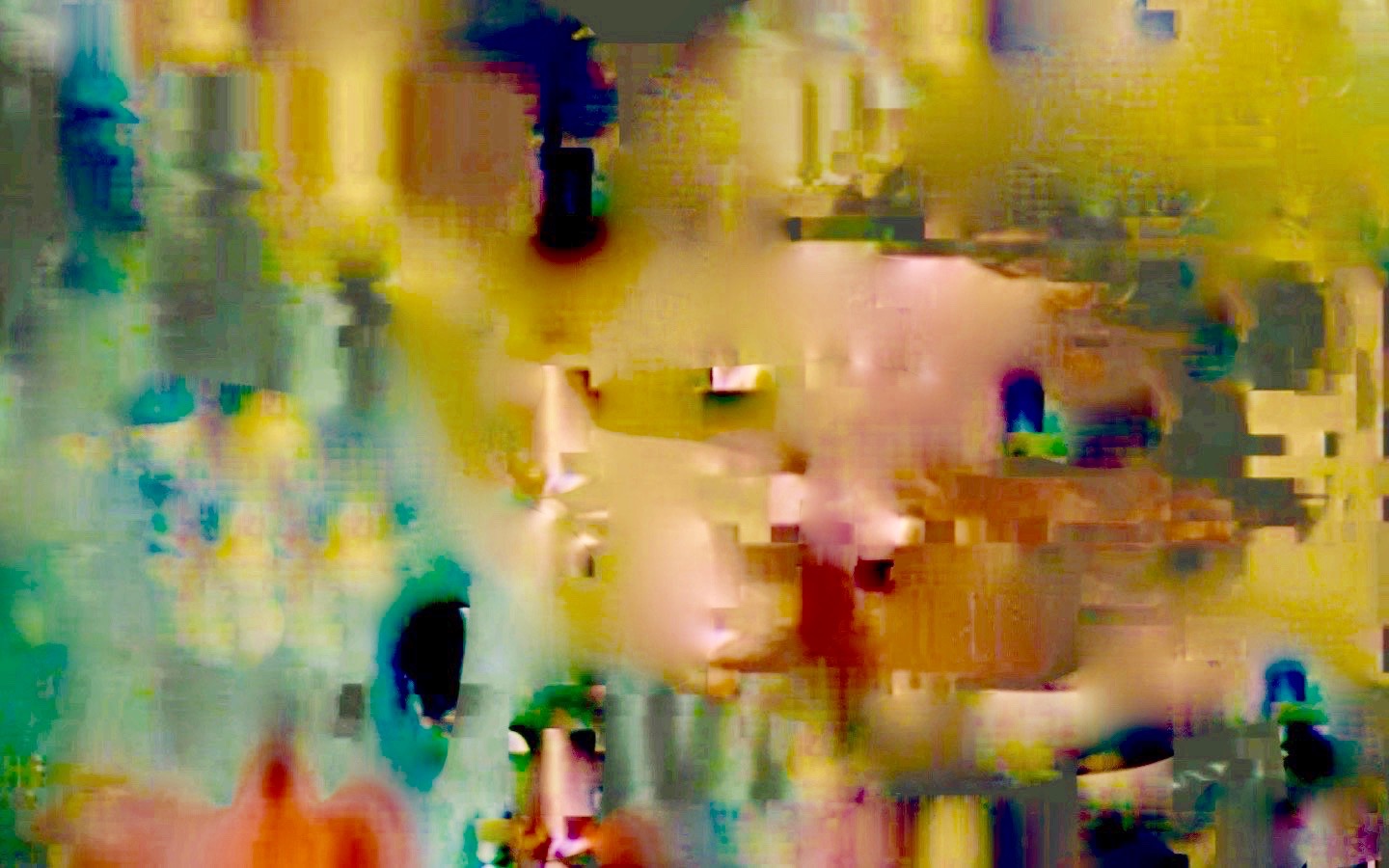Technology can turn us into zombies, as Concordia University student Aaron Ansuini bitterly discovered. While searching for the email address for his professor Francois-Marc Gagnon, he instead found his obituary. The long-time lecturer in Art History was teaching a full online class in Spring 2021 even though he died in 2019.
A university spokesperson defended the institution’s right to use Gagnon’s lectures as a ‘teaching tool’ as part of the online platform eConcordia. ‘These kind of things happen at the university, and it’s never evil or anything, it’s just a question of allocating resources and time’, Gagnon’s son, Yakir, commented on the incident. But the revelation over the zombie nature of his online instructor dramatically changed Ansuini’s learning experience, who declared: ‘It doesn’t feel like a class. It feels like one of those websites, like a Skillshare’.
Automation has become such a central feature in our contemporary digital experience that we have become automated ourselves. In an increasingly digital post-pandemic world, it should be no surprise that the dead come back in the guise of living -and teaching- bots. Contemporary capitalism makes no mystery of its extractive nature and, if already harvesting our data and extracting value from them, why not doing so with our living bodies? While tribal societies used to mythologize death and build their cosmologies upon it, today’s capitalism seems rather to be wanting to normalize the sinister event and turn it into an economic asset.
Working to death tragically happened to Paula de Simone, a university professor in Buenos Aires who died after gasping for air live on one of her Zoom classes. Just like in Haitian folklore, where zombies are dead slaves reanimated through voodoo rituals giving them a bonus half-life to produce unstoppable labor, here we are, zombified by a technology that constrains us into a non-stop working cycle, inhaling our last breath in front of our LCD screens, comfortably sitting in our living rooms.

source: Voodle
In traditional narratives, zombies lose consciousness because of the magic rituals turning them into bodies devoid of souls. We, techno zombies, lose ourselves in technology, mesmerized and consumed by endless rituals of self-surveillance executed daily on e-learning, video-sharing, e-meeting platforms.
In this replication of the self, in the voluntary process of uploading, storing and sharing ourselves, our bodies are condemned to live – and work – forever in bits and pixels, just like zombies enslaved in their afterlife. Or just like the dead protagonist of Black Mirror’s ‘Be right back’, who resurrects through his digital footprint, haunting his former fiancé first in the guise of a phone voice, then as an android replica.
Back in 1968, George A. Romero’s cinematic ‘trilogy of the Dead’ had already pointed out to the role of technology as a quintessential site for zombification, showing how every place that we deem a comfort zone – from the family to the school to the reassuring temple of consumerism, the shopping mall – has been infected and become contagious. ‘Diary of the Dead’ (2007), one of his last tributes to zombie culture, seems to suggest that this infection is endemic and comes directly from technology.

In this movie, the dead no longer arise in the guise of zombies from the traditional site of a cemetery. Rather, they spawn on a live newscast, where a migrant who shot himself to death after killing his wife and child resurrects attacking the journalist on camera. While the real ‘immigration’ problem now involves the crossing between life and death, it is the pervasiveness of technology that renders the invasion possible. Cameras are everywhere, in the wearable micro-form of hand-held smartphones as much as in the above-our-shoulders sinister shape of CCTV devices.
Technology condemns us to restlessly report about ‘what is happening’: Twitter’s tagline since 2016. It subjugates to the tyranny of bearing witness and sharing in real-time, putting us at work 24hrs with no breaks or pauses. Without us, the story can’t be told and, actually, it can’t even unfold, as the protagonist of ‘Diary of the Dead’ bitterly realizes.
No longer in a zombie movie, we are now living in a pandemic reality where it should be ‘no surprise’ that a university class continues its ‘onlife’ regardless of the professor’s death. The lectures are just a ‘teaching tool’and the teacher merely a deliverer, who can eventually be replaced by his zombie dopplelganger. In the name of the planetary crisis brought by the Corona virus, all sorts of emergency measures have been legitimized in the education sector (and beyond), from cutting salaries and firing staff to implementing biopolitics on campuses through wearable devices that seem to come out from a dystopian novel by Philip K Dick. Within the pandemic becoming the new normal and the digital turning into the new black, no wonder that recycling classes from a dead professor shouldn’t have been a surprise, as university employers candidly remark.

When asked by a Playboy interviewer whether remaining unaware of the changes generated by new media would ultimately be beneficial to man’s self-preservation, Marshall McLuhan solemnly declared: ‘This is the zombie stance of the technological idiot’. The ‘media is the message’ guru maintained that, ‘if we understand the revolutionary transformations caused by new media, we can anticipate and control them; but if we continue in our self-induced subliminal trance, we will be their slaves’. McLuhan’s was a wake-up call against the potential zombifying effect of technology, its morbid tendency to capture and allure, to devour consciousness and put us in a sleepwalking status.

Capitalism has always had zombie-like features, starting from Adam Smith’s invisible hand, disembodied and disjunct from other body parts, with no brain or consciousness, and yet regulating the market in a quasi-magical fashion. Every individual, Smith writes, is ‘led by an invisible hand to promote an end which was no part of his intention’ but automatically results in benefiting the entire society. In a sort of zombie-like sleepwalking mindlessness, automation has replaced autonomy, and autonomy seems now possible only when enabled by automation.

source: Econlife
In our universe increasingly populated by Siri, Alexa and Lil Miquela, with Hollywood actors performing their best roles from the afterlife and US presidential candidates tweeting from the hereafter, it might just make sense to let our digital dopplelgangers outlive us, have them replace our teaching, posting and sharing for us, feeding nice memories to our loved ones, accumulating more and more undead data.

source: Lil Miquela
We can surely live in this tech-enabled comfort zone, shielded by the self-protective numbing, producing and reproducing our survival strategy, telling us that what is happening is no evil but just a matter of ordinary maintenance in a crisis situation.
And this would be the idiot stance of the technological zombie.
*a big thank you to Bruce Schneier
taken from here
Foto: Sylvia John

